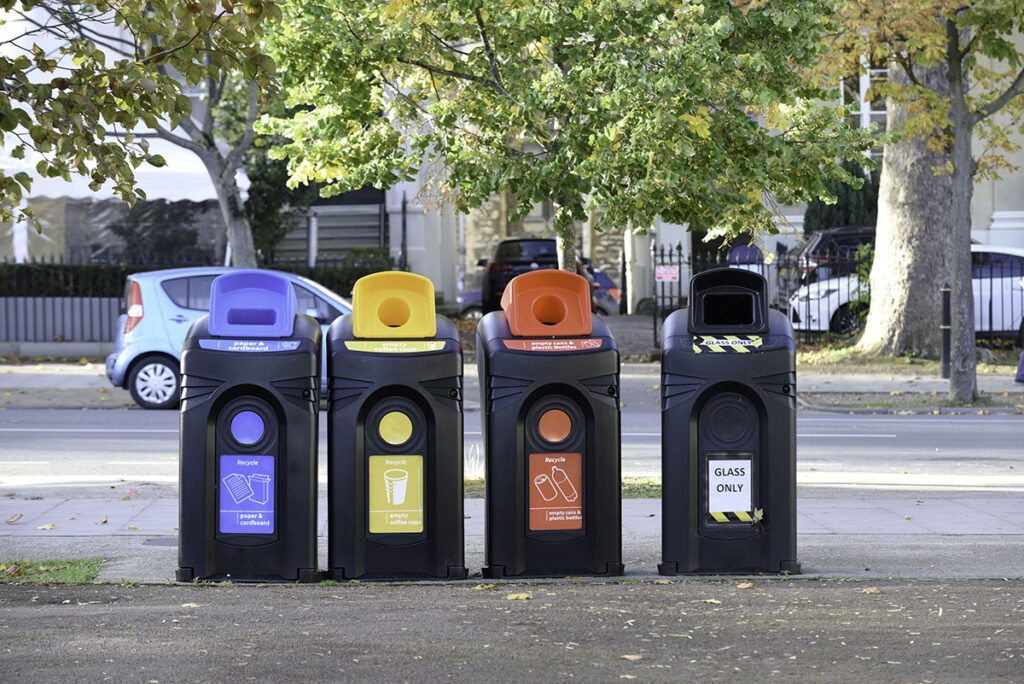RECycling of Used Plastics Limited (RECOUP) a charity and leading authority on plastics recycling investigates what it will take to make the UK’s 2025 goal of 70 per cent of plastics to be recycled.
The coming years are critical if the 2025 goal of 70 per cent of plastics to be recycled are to be realised. It will take time to achieve the desired circularity at scale within the plastic material chains. A key challenge facing the UK is the infrastructure and associated capacities to sort and recycle plastics without relying heavily on export markets.
The need for the UK to have infrastructure to handle its own waste, in terms of both capacity and achieving the required quality, is becoming increasingly important. In recent years, the UK has seen around 60 per cent of its plastic packaging waste exported for recycling.
However, with policy and legislative changes in the UK, EU and individual countries (including the historically larger export markets of China and Turkey), it is now more important than ever that sufficient capacity is available for the UK to manage its own volumes of waste.
In the last two years in particular, a multitude of policy and legislative changes have been proposed and consulted on through the UK Government and devolved administrations.
Whilst each of these addresses specific environmental and recycling aims, with different timescales and dynamics, there is a growing sense of importance that they work together and settle to help direct the future capability of the UK to manage our waste.
Producer Responsibility Systems, holding corporations responsible for the collection and recycling of specified volumes of their plastic products, must be fair and deliver change at speed.
Primary discussion points for the UK include focus on:
• HMRC’s UK Plastic Packaging Tax; requiring plastic packaging to contain 30 per cent recycled content or be subject to a £200 per tonne tax.
• Defra’s proposed reform of the UK’s Packaging Producer Responsibility System, otherwise known as Extended Producer Responsibility (EPR).
• Defra’s consultation on Consistency in Household and Business Recycling in England.
• Consultations on the use of Single-Use Plastic Packaging in England (Defra), Scotland (Scottish Government), Wales (Welsh Government), and Northern Ireland (DAERA).
• Defra’s consultation on Deposit Return Schemes in England, Wales, and Northern Ireland.
• Scottish Government’s consultation on a Deposit Return Scheme in Scotland.
• Competition and Markets Authority guidance on Environmental Claims on Goods & Services.
RECOUP has responded to each of these consultations, amongst others, and will continue to do so as they progress.
Furthermore, policy and regulation are being consulted on by both the European Commission and the Basel Convention. These are particularly relevant as the UK is now classed as an Organisation for Economic Co-operation and Development (OECD) country by the European Union. Changes include:
• Revisions being made to the European Waste Shipment Regulations impact the quality and contamination thresholds for material that is imported and exported from and to European Union Member States and the European Economic Area (EEA).
• European regulations around the use of recycled plastics in food-contact materials impact what products manufactured in the UK can be sold in the EU.
• Revisions to the Basel Convention on the export of plastic waste, particularly relating to Green List waste and exports to non-OECD countries.
In addition to policy changes and consultations taking place, there are several areas of plastics-focused research being examined across the UK. These include:
• The collection and recycling of plastic film in various environments, including post-consumer flexible packaging and retailer front-of-store collections. This work is taking place ahead of consistent collection legislation coming into force which will mandate the collection of plastic film via kerbside schemes.
• Marine and ocean bound plastics, in terms of both the data and prevalence of plastics in waterways around the UK and further afield, as well as the claims made in relation to recycled plastics from marine environments.
• Research into compostable and biodegradable packaging and its place in the UK collection structure.
• Collection and recycling of plastics from Household Waste Recycling Centres (HWRCs).
• Consumption, disposal, and recycling of packaging away from home.
• Use of agricultural plastics and recycling.
There is a lot of work to be done. It is necessary not only to overcome the technological and development challenges, but it is also key to remain focused on the environmental impact of all solutions proposed.
Clearly it cannot be right to allow plastics to leak into the environment or for the resource to be lost, but neither is it acceptable to remove the opportunity to use plastics where it is often the most cost effective and carbon efficient material available.
Improved recycling, refill, re-use and reduction programmes will all have a part to play as the world works towards net zero and a sustainable future. There are challenges that must be met head on as we move forward. There is an urgent need to identify and enforce against illegal activities in the resources sector both in the UK and internationally.
Producer responsibility systems across all sectors must be fair, ambitious and deliver change at speed. Everyone has a responsibility to question the details, look for the facts, and ensure environmental decisions are based on sound science, evidence and data.
The potential for further infrastructure growth, innovation and job creation across all parts of the plastic resources and recycling chain remains, and the evolution has already begun. There is a genuine confidence that the whole plastics resource and recycling industry is stepping up to the challenge of a plastic circular economy.
As one of the most respected advisors on plastics recycling, RECOUP’s expertise continues to be based on evidence, research and facts with integrity. It provides a unique, independent and unbiased view of the value change to allow organisations to understand what is required to move forward collectively.
Through leadership, policy, corporate governance and innovation we can ensure we are heading in the right direction to hit the 2025 targets.
